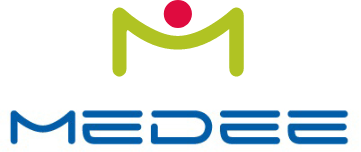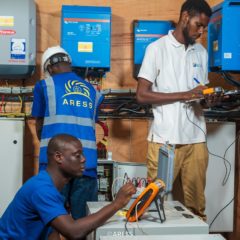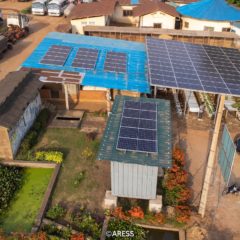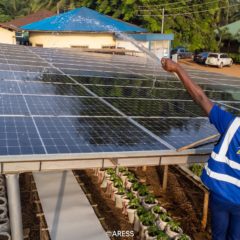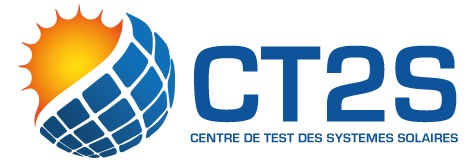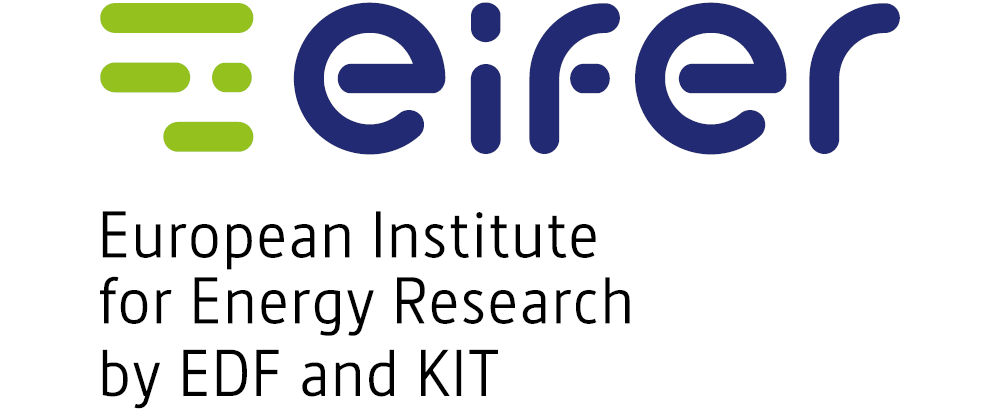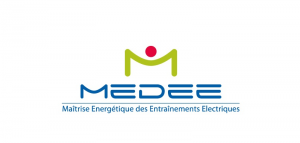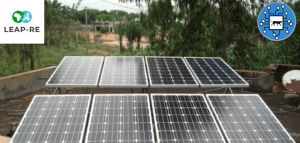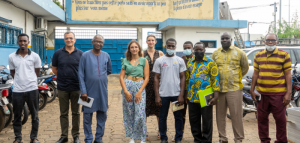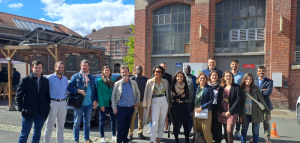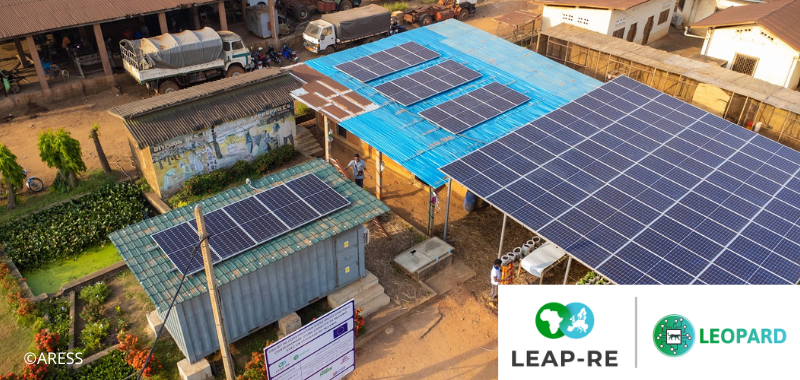
LEOPARD
À propos de ce projet
Type de projet
H2020, #GA963530
Thématique
Énergie en Afrique
Statut
En cours
Année
2021-2024
Budget
1 530 000 €
Localisation
Afrique de l’Ouest (Bénin, Sénégal)
Thème
English version below ▼▼
Contexte
Le projet LEOPARD est l’un des huit projets retenus dans le cadre du second pilier du programme européen LEAP-RE – Long-Term Joint EU-AU Research and Innovation Partnership on Renewable Energy. L’objectif de ce programme est de créer une communauté de recherche et d’innovation UE-UA pour les énergies renouvelables.
Objectifs
Le projet LEOPARD vise à disséminer la technologie micro-grid en concevant, testant et évaluant une solution conteneurisée de production d’énergie renouvelable en milieu rural et péri-urbain. Le projet vise également à :
- Déterminer les conditions locales d’accès à l’énergie au niveau du quartier, du village et de la région
- Optimiser les bénéfices technico-économiques, en tenant compte des usages et des appropriations locales de la solution
- Analyser les conditions et les impacts de l’interconnexion de la solution conteneurisée hors réseau dans un micro-réseau plus important et sa connexion au réseau national
- Définir les conditions de replicabilité et cartographier des zones de réplicabilité au Bénin et au Sénégal
Démarche partenariale
Sous la coordination de l’Université de Picardie Jules Verne (UPJV), via le Laboratoire de Technologies Innovantes, le projet compte six partenaires béninois, sénégalais, allemand et français : le Centre Songhai, ARESS (African Renewable Energy Systems & Solutions), l’EPAC (Ecole Polytechnique d’Abomey-Calavi), le CT2S (Centre de Test des Systèmes Solaires), EIFER (European Institute for Energy Research) et le pôle MEDEE.
Sur la base des données collectées sur le terrain par le CT2S, l’EPAC et le Centre Songhai, EIFER modélisera et simulera une solution conteneurisée de production d’énergies renouvelables avec stockage. Grâce aux résultats de la simulation, ARESS fournira une spécification détaillée de la solution et construira un prototype. La société béninoise développera également un système de paiement à distance. Le prototype sera alors testé dans deux endroits au Bénin pour évaluer la solution en environnement rural et péri-urbain. L’un des sites choisis est celui du Centre Songhai. En parallèle, le CT2S développera un protocole de contrôle qualité pour garantir la durabilité du système et réduire la maintenance. Enfin, des études de réplicabilité au Sénégal seront menées. Le Pôle MEDEE sera en charge de la Communication et de la Dissémination des résultats du projet.
LEOPARD capitalise sur les projets précédents du pôle MEDEE, menés notamment avec le Bénin : par la présence dans le consortium de l’EPAC et de ARESS, ce projet constitue une première concrétisation des ambitions de la Convention de Partenariat signée avec le Cluster Energies et Applications au Bénin en février 2020.
Avancées
Le 26 septembre 2021, le consortium LEOPARD a organisé une réunion de lancement public du projet sur le site du centre Songhaï à Porto-Novo. Cet évènement a suscité des échanges constructifs entre intervenants et participants et a montré la pertinence locale du projet.
Ce déplacement a également permis des sessions de travail avec l’ensemble du consortium, des visites des sites des partenaires béninois ARESS et EPAC ainsi qu’une excursion sur le futur site démonstrateur du Centre Songhaï.
Retrouvez le kick-off en images ici !
En juillet 2022, l’installation du premier démonstrateur du projet LEOPARD a eu lieu sur le campus du Centre Songhaï. ARESS a terminé l’acheminement du container fabriqué au Bénin. En collaboration avec Songhaï et l’EPAC, ARESS travaille maintenant sur l’installation des équipements solaires et sur les outils de mesure associés au container. Le CT2S appliquera ensuite le protocole qualité défini au début du projet pour vérifier les spécifications du démonstrateur. Ce pilote vise à valider le processus de dimensionnement de solutions de micro-réseaux à usage productif et domestique et à tester les différentes fonctionnalités du conteneur (production, fonctionnement hybride, stockage,). Pour cela, le Centre Songhaï est utilisé comme un living lab pour tester la solution technique retenue. Le dimensionnement de ce premier conteneur est basé sur des simulations réalisées par EIFER sur son outil MemoGrid.
Les partenaires de LEOPARD se sont réunis à Lille du 12 au 16 septembre 2022 pour la deuxième réunion de consortium en présentiel du projet. Cette rencontre a permis d’engager des échanges avec des acteurs régionaux actifs en Afrique, de mettre en place des sessions de travail et de visiter les partenaires LEOPARD de la Région Hauts-de-France. Cette mission avait en point d’orgue la participation de ces délégations au Forum « Accès à l’énergie : soutenir l’innovation entre l’Europe et l’Afrique », organisé par MEDEE. Nos partenaires ont notamment tenu des stands au sein du village des partenaires, pitché leurs solutions lors de l’atelier ESECA et pris part à des échanges B2Bs !
Un premier webinaire a eu lieu le 15 juin 2023, afin de présenter l’outil MemoGrid. MemoGrid (Mutli-Energy Modeling for microGrids) est un outil numérique développé depuis 2018 par l’EIFER – European Institute for Energy Research. Il permet des évaluations technico-économiques rapides ainsi que le design et l’optimisation des microgrids afin d’atteindre un coût minimum de l’électricité (LCOE – Levelized Cost of Energy), que ce soit pour un système unique ou des systèmes multiples avec les mêmes conditions limites.
(Re)visionnez dès maintenant ce webinaire ▼
[Replay] LEOPARD : découvrez MemoGrid, outil numérique au service des microgrids en Afrique
Le 25 octobre 2023 un webinaire a réuni les partenaires du projet LEOPARD autour d’une présentation de l’outil SIG LENI. Cet outil, développé par EIFER et mis à jour dans le cadre du projet LEOPARD, est un outil d’aide à la décision visant à identifier rapidement des villages candidats afin d’y déployer des solutions d’électrification rurale (microgrids ou SHS) à l’échelle d’une région ou d’un pays.Cet évènement a permis aux participants d’échanger sur la réplicabilité des démonstrateurs micro-grids déployés au Bénin dans le cadre du projet LEOPARD. L’objectif de cette étude est d’identifier des sites potentiels pour dupliquer ces solutions technologiques, avec un focus sur le Bénin et le Sénégal.
(Re)visionnez dès maintenant ce webinaire ▼
[Replay] LEOPARD : répliquer les projets microgrids grâce à l’outil LENI
Le projet LEOPARD s’inscrit dans l’axe 3 de MEDEE « Intégration système et gestion de l’énergie ». Il a reçu le soutien du Comité Scientifique du pôle en Décembre 2020.
Retrouvez le flyer de présentation du projet !
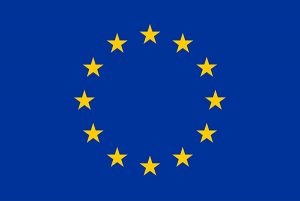
This project has received funding from the European Union’s Horizon 2020 research and innovation programme under grant agreement No 963530
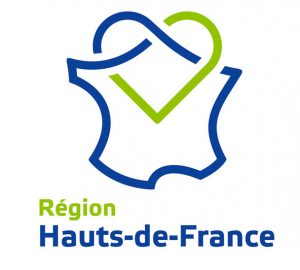
Les actions du pôle MEDEE dans le cadre du projet LEOPARD sont cofinancées par la Région Hauts-de-France.
Context
LEOPARD project is one of the eight projects selected under the second pillar of the LEAP-RE European program – Long-Term Joint EU-AU Research and Innovation Partnership on Renewable Energy. The objective of this program is to create an AU-EU research and innovation community in the field of renewable energies.
Objectives
LEOPARD aims at disseminating micro-grid technology by designing, testing, and evaluating a containerized solution for renewable energy production in rural and peri-urban areas. LEOPARD further seeks to:
- Determine the local conditions for access to energy at the neighborhood, village, and regional level
- Optimize the technical and economic benefits, considering the local uses and appropriation of the solution
- Analyze the conditions and impacts of the interconnection of the off-grid containerized solution into a larger micro-grid and its connection to the national network
- Define the conditions for replication and map the areas in Benin and Senegal where the solution could be appropriate.
Collaborative strategy
Under the coordination of the Université de Picardie Jules Verne (UPJV), trough the laboratory „Laboratoire de Technologies Innovantes“, the project includes six partners from Benin, Senegal, Germany and France: the Songhai Center, CT2S (Centre de Test des Systèmes Solaires), ARESS (African Renewable Energy Systems & Solutions), EIFER (European Institute for Energy Research), EPAC (Ecole Polytechnique d’Abomey-Calavi) and the MEDEE cluster.
Based on field data collected by CT2S, EPAC and the Songhai Center, EIFER will model and simulate a containerized renewable energy production solution including storage. Based on the simulation results, ARESS will provide a detailed specification of the solution and will build a prototype. The Beninese company will also develop a remote payment system. The prototype will then be tested in two locations in Benin to evaluate the solution in rural and peri-urban environments. One of the selected site is the one of Songhai Center. In parallel, CT2S will develop a quality control protocol to guarantee the sustainability of the system and reduce maintenance needs. Finally, replication studies in Senegal will be conducted. MEDEE will oversee Communication and Dissemination of the project results.
LEOPARD capitalizes on previous MEDEE projects, especially conducted with Benin: through the participation of EPAC and ARESS, this project constitutes a first achievement of the ambitions of the Partnership Agreement signed with the „Energies et Applications“ Cluster in Benin in February 2020.
Achievements
On September 26th, 2021, LEOPARD consortium organized a kick-off meeting at the Songhaï Center in Porto-Novo. This event led to constructive exchanges between speakers and participants and demonstrated the local relevance of the project.
The mission also allowed for working sessions with the consortium, visits to the sites of the Beninese partners ARESS and EPAC as well as an excursion to the future demonstration site of the Songhai Center.
On 25 October 2023, a webinar brought together the partners in the LEOPARD project to present the LENI. This tool, developed by EIFER and updated as part of the LEOPARD project, is a decision-support tool designed to quickly identify candidate villages for the deployment of rural electrification solutions (microgrids or SHS) on a regional or national scale. This event enabled participants to discuss the replicability of the micro-grid demonstrators deployed in Benin as part of the LEOPARD project. The aim of this study is to identify potential sites for replicating these technological solutions, with a focus on Benin and Senegal.
See above to watch the projet presentation video ▲▲
On July 2022, the installation of the first demonstrator of the LEOPARD project started on the campus of Songhaï Center. ARESS completed the routing of the container made in Benin. Together with Songhaï and EPAC, ARESS is now working on the solar equipment and measuring tools associated with the container. CT2S will then apply the quality protocol defined at the beginning of the project to verify the demonstrator specifications. This pilot seeks to validate the sizing of micro-grid solutions for productive and domestic use and to test the different features of the container (production, hybrid operation, storage,). For this purpose, Songhaï Center is used as a living lab to test the chosen technical solution. The sizing of this first container is based on simulations done by EIFER on its MemoGrid Tool.
LEOPARD partners met in Lille, France from September 12th to 16th 2022 for the second project gathering. This meeting allowed constructive exchanges with local stakeholders active in Africa, to set up working sessions, and to visit LEOPARD partners in the Hauts-de-France Region. This mission culminated in the participation of these delegations in the Forum « Access to energy: supporting innovation between Europe and Africa », organized by MEDEE. Our partners had stands in the partners’ village, pitched their solutions during the ESECA workshop and took part in B2B exchanges!
Please find here the project brochure

This project has received funding from the European Union’s Horizon 2020 research and innovation programme under grant agreement No 963530

The activities of MEDEE cluster in the framework of the LEOPARD project are co-financed with the support of the Hauts-de-France Region.
LEOPARD project received support from MEDEE Scientific Committee in December 2020.
Partenaires
